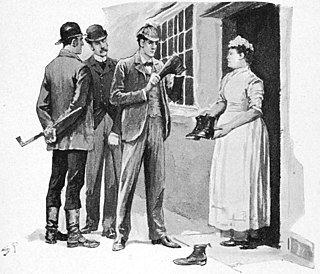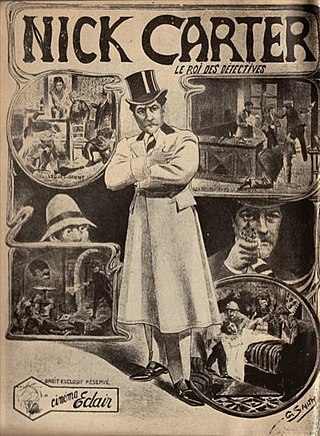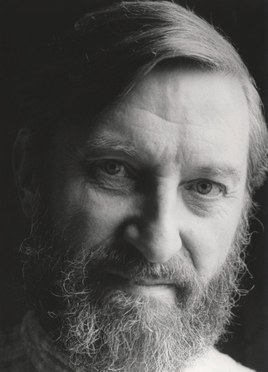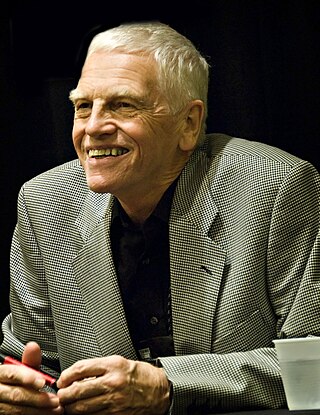Life
From 1924 to 1932 he completed his studies at the Royal Military Academy, Woolwich. He was a detective in the Wiltshire Police force from 1939 to 1969, except during World War II, from 1943 to 1946, when he served as a lieutenant in the Royal Air Force. He was also a columnist for the Wiltshire Courier newspaper from 1963 to 1964.
Shortly before his retirement from the police, he began a career as a writer by publishing in 1968, under the pseudonym Jonathan Ross, the first title of a series in the police procedural genre, whose recurrent hero is the irascible Chief Inspector George Rogers of 'Abbotsburn', with his assistant Detective Inspector David Lingard, a dandy who likes to take snuff, which annoys his superior. Unyielding in his methods, Rogers is often entangled in a complex investigation, but his sense of method allows him to get by.
After the publication of four titles in his crime series, Rossiter published under his own name a series of espionage thrillers following the missions of British agent Roger Tallis. Given the lack of success encountered, the author tried further thrillers, before limiting himself to the investigations of George Rogers.

Detective fiction is a subgenre of crime fiction and mystery fiction in which an investigator or a detective—whether professional, amateur or retired—investigates a crime, often murder. The detective genre began around the same time as speculative fiction and other genre fiction in the mid-nineteenth century and has remained extremely popular, particularly in novels. Some of the most famous heroes of detective fiction include C. Auguste Dupin, Sherlock Holmes, and Hercule Poirot. Juvenile stories featuring The Hardy Boys, Nancy Drew, and The Boxcar Children have also remained in print for several decades.

John Edward Thaw, was an English actor who appeared in a range of television, stage, and cinema roles. He starred in the television series Inspector Morse as title character Detective Chief Inspector Endeavour Morse, Redcap as Sergeant John Mann, The Sweeney as Detective Inspector Jack Regan, Home to Roost as Henry Willows, and Kavanagh QC as title character James Kavanagh.

Crime fiction, detective story, murder mystery, mystery novel, and police novel are terms used to describe narratives that centre on criminal acts and especially on the investigation, either by an amateur or a professional detective, of a crime, often a murder. It is usually distinguished from mainstream fiction and other genres such as historical fiction or science fiction, but the boundaries are indistinct. Crime fiction has multiple subgenres, including detective fiction, courtroom drama, hard-boiled fiction, and legal thrillers. Most crime drama focuses on crime investigation and does not feature the courtroom. Suspense and mystery are key elements that are nearly ubiquitous to the genre.
Ellery Queen is a pseudonym created in 1929 by American crime fiction writers Frederic Dannay and Manfred Bennington Lee and the name of their main fictional character, a mystery writer in New York City who helps his police inspector father solve baffling murders. Dannay and Lee wrote most of the more than thirty novels and several short story collections in which Ellery Queen appeared as a character, and their books were among the most popular of American mysteries published between 1929 and 1971. In addition to the fiction featuring their eponymous brilliant amateur detective, the two men acted as editors: as Ellery Queen they edited more than thirty anthologies of crime fiction and true crime, and Dannay founded and for many decades edited Ellery Queen's Mystery Magazine, which has been published continuously from 1941 to the present. From 1961, Dannay and Lee also commissioned other authors to write crime thrillers using the Ellery Queen nom de plume, but not featuring Ellery Queen as a character; several juvenile novels were credited to Ellery Queen, Jr. Finally, the prolific duo wrote four mysteries under the pseudonym Barnaby Ross.

Mystery is a fiction genre where the nature of an event, usually a murder or other crime, remains mysterious until the end of the story. Often within a closed circle of suspects, each suspect is usually provided with a credible motive and a reasonable opportunity for committing the crime. The central character is often a detective, who eventually solves the mystery by logical deduction from facts presented to the reader. Some mystery books are non-fiction. Mystery fiction can be detective stories in which the emphasis is on the puzzle or suspense element and its logical solution such as a whodunit. Mystery fiction can be contrasted with hardboiled detective stories, which focus on action and gritty realism.
John Dann MacDonald was an American writer of novels and short stories. He is known for his thrillers.
The police procedural, police show, or police crime drama, is a subgenre of procedural drama and detective fiction that emphasizes the investigative procedure of a police officer or department as the protagonist(s), as contrasted with other genres that focus on either a private detective, an amateur investigator or the characters who are the targets of investigations. While many police procedurals conceal the criminal's identity until the crime is solved in the narrative climax, others reveal the perpetrator's identity to the audience early in the narrative, making it an inverted detective story. Whatever the plot style, the defining element of a police procedural is the attempt to accurately depict the profession of law enforcement, including such police-related topics as forensic science, autopsies, gathering evidence, search warrants, interrogation and adherence to legal restrictions and procedure.

A mystery film is a genre of film that revolves around the solution of a problem or a crime. It focuses on the efforts of the detective, private investigator or amateur sleuth to solve the mysterious circumstances of an issue by means of clues, investigation, and clever deduction.

Freeman Wills Crofts FRSA was an Irish mystery author, best remembered for the character of Inspector Joseph French.
John Creasey was an English crime writer, also writing science fiction, romance and western novels, who wrote more than six hundred novels using twenty-eight different pseudonyms.
Michael Collins is the best-known pseudonym of Dennis Lynds, an American author who primarily wrote mystery fiction.

Henry Reymond Fitzwalter Keating was an English crime fiction writer most notable for his series of novels featuring Inspector Ghote of the Bombay CID.
Gwendoline Butler, née Williams was a British writer of mystery fiction and romance novels since 1956, she also used the pseudonym Jennie Melville. Credited for inventing the "woman's police procedural", is well known for her series of Inspector John Coffin novels as Gwendoline Butler, and by female detective Charmian Daniels as Jennie Melville.

Peter (Harmer) Lovesey, also known by his pen name Peter Lear, is a British writer of historical and contemporary detective novels and short stories. His best-known series characters are Sergeant Cribb, a Victorian-era police detective based in London, and Peter Diamond, a modern-day police detective in Bath.
Patrick Quentin, Q. Patrick and Jonathan Stagge were pen names under which Hugh Callingham Wheeler, Richard Wilson Webb, Martha Mott Kelley and Mary Louise White Aswell wrote detective fiction. In some foreign countries their books have been published under the variant Quentin Patrick. Most of the stories were written by Webb and Wheeler in collaboration, or by Wheeler alone. Their most famous creation is the amateur sleuth Peter Duluth. In 1963, the story collection The Ordeal of Mrs. Snow was given a Special Edgar Award by the Mystery Writers of America.
George Baxt was an American screenwriter and author of crime fiction, best remembered for creating the gay black detective, Pharaoh Love. Four of his novels were finalists for the Lambda Literary Award for Gay Mystery.
John George Haslette Vahey was a versatile and prolific Northern Irish author of detective fiction in the genre's Golden Age in the 1920s and 1930s. Although his work has remained largely out of print since the end of the golden age, he is now enjoying a resurgence of popularity, and some of his work is again in print, or available as e-books.
Frank Forsyth, sometimes credited as Frank Forsythe, was an English actor, active from the 1930s. He was born on 19 December 1905 in London, England. He appeared in several TV programmes, including Department S (1969), The Adventures of Black Beauty (1972) and Journey to the Unknown (1968), as well as numerous films including eight of the Carry On films. He died on 2 May 1984 in Poole, England.
Sylvia Haymon was a British writer of mystery fiction, autobiography, and other fiction and nonfiction. As an adult, she worked in public relations, broadcasting, journalism, and farming, and published nonfiction that included two childhood memoirs, a historical novel, biographies of Bonnie Prince Charlie and Monmouth, and a history of Norwich, her birthplace. Writing under the pseudonym S. T. Haymon, she became well-known for her police procedural series featuring Detective Inspector Ben Jurnet. She won the Crime Writers Association Silver Dagger Award in 1983 for Ritual Murder.







